Yakuza 0 Has Two Brilliant Fight Songs
Although reserved to side content, these fight songs give you more than just an adrenaline rush
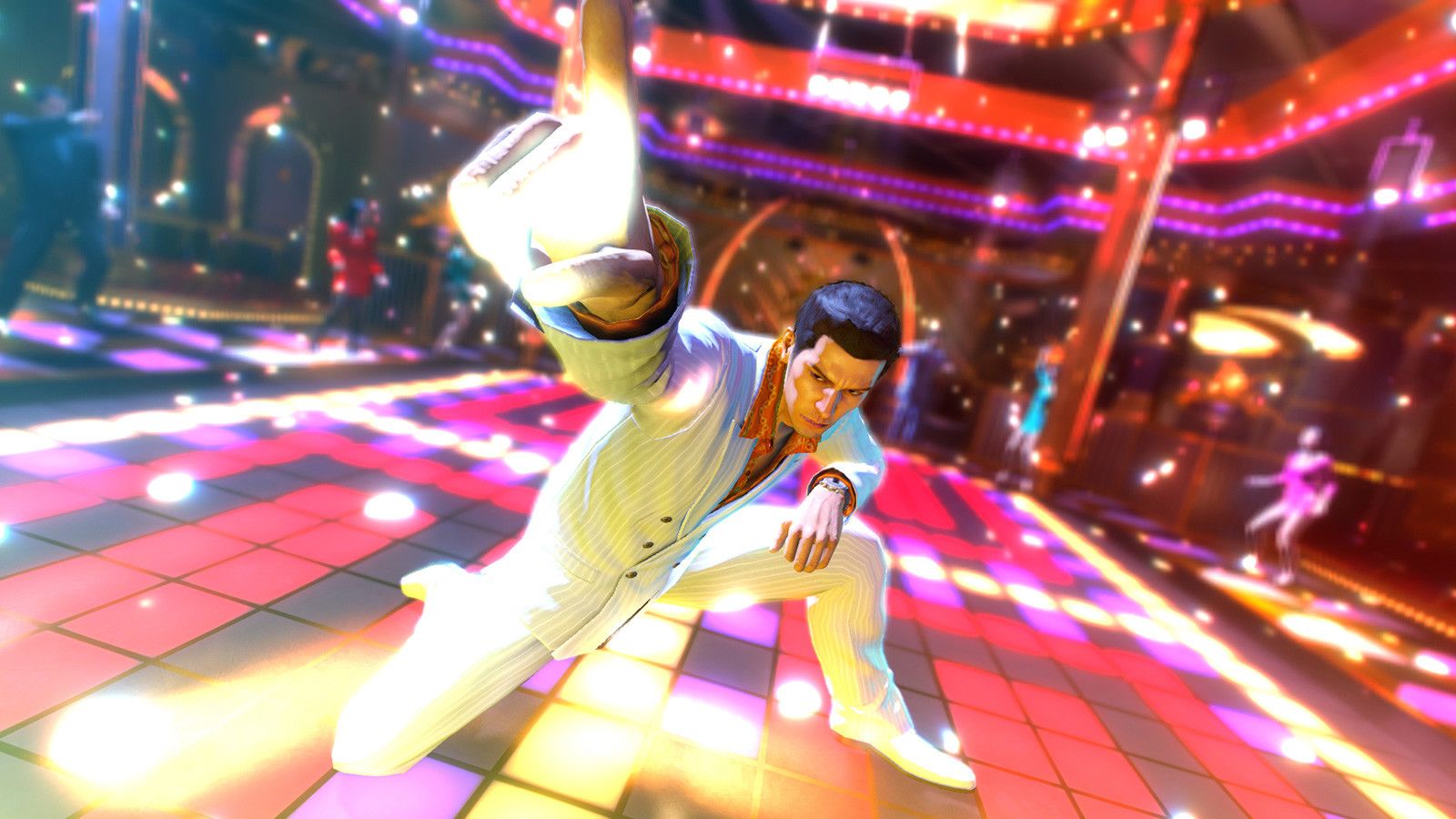
Two Yakuza 0 tracks found in the game’s business side story managed to bring out the unique personalities of its two protagonists in addition to providing players with a thrilling brawl experience.
Fight songs make up a huge chunk of a soundtrack list on any game with action elements in it. It can be argued that their main purpose is — to put it simply — hype up players when confronting an in-game hurdle, be it enemy NPCs or environmental hazards, e.g. the snow avalanche escape in Need for Speed: The Run.
Good fight songs excite the player during the sequence, but great fight songs do more than just that; they tell a story about the player's relationship to the fight they are in.
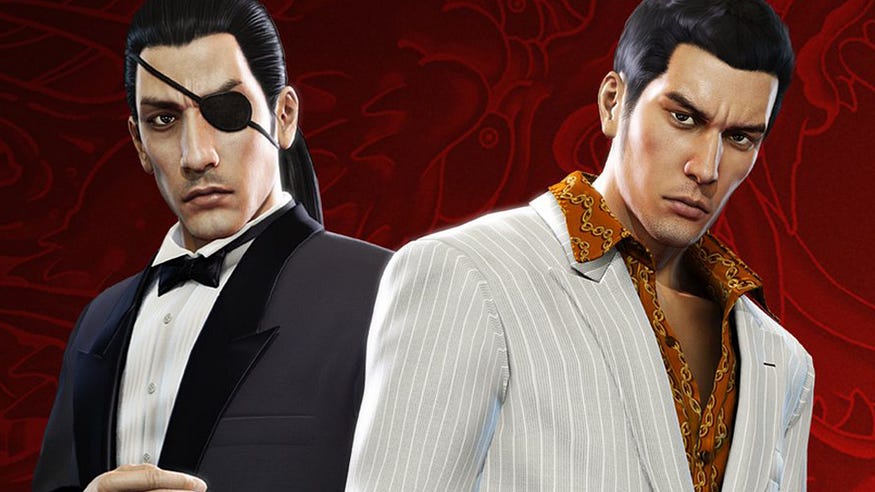
An example of this is “One They Fear” from Skyrim, one of the two songs that can play when the Dragonborn fights a dragon. The Dragon Tongue chant featured in the track tells the story of the Dragonborn’s destiny to banish evil from the world with powers inherited from both dragon and mankind. While the chants undoubtedly excite players in an epic battle with a dragon, it also tells the story of what the player character means to the world around them and, to an extent, the dragon they are fighting.
And as it turns out, two fight songs in Yakuza 0 manage to achieve just that: telling a story about the player character’s relationship to the fights they were tangled in.
Interestingly enough, the two songs didn’t make an appearance in the game’s main story; instead, they came on during the business side story that can be tackled by the game’s two protagonists, Kazuma Kiryu and Goro Majima. Both protagonists have their own business side stories, with Kiryu becoming a real estate mogul and Majima turning into a cabaret club manager.
With Yakuza 0 being a beat-em-up through and through, it is only natural that these two business-centered side questlines involve streetfighting scenarios, and that is where the two tracks come in. Despite their side content status, however, the two tracks managed to convey the personalities of both Kiryu and Majima just as well as — if not better than — the thematic tracks found in the main story.
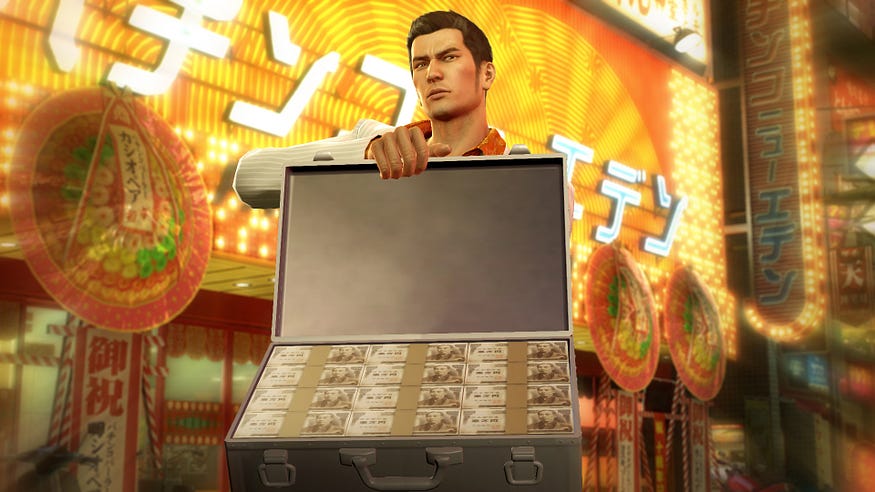
Kazuma Kiryu — “Trouble Shooting Star”
In Kiryu’s real estate side questline (dubbed “Real Estate Royale” in-game), Kiryu has to go up against five greedy real estate moguls called the Five Billionaires by buying their properties and battling them for land control in Kamurocho (based on the Tokyo district of Kabukicho).
As Kiryu buys properties and starts to take over portions of districts owned by the five moguls, they will send goons to areas owned by Kiryu to harass his tenants and hamper his source of income. To solve this problem, Kiryu can convince the goons to leave his premises in the most business-savvy way possible: by beating the lights out of them with “Trouble Shooting Star” playing in the background.
The track has a fast-paced rock feel to it with crunchy guitar riffs and hard-hitting drum thumps which made for a thrilling battle track. The use of percussion throughout the track serves only to enhance the listening experience and convey Kiryu’s character and his approach to his battles.
The electric guitar lick combined with the exciting use of build-ups in the drums present throughout the track reflects Kiryu’s aggressive fighting style. His fighting style leans towards functional and straightforward rather than flamboyant and sophisticated, which is evidenced with this track.
The track hits hard with its strong thumps and low-screeching riffs, much like Kiryu’s explosive punches, ferocious kicks, and tanky stature that allowed him to fight ten thugs at the same time and somehow come out on top unscathed. The grungy garage band feel of the track is thanks to its electric guitar riffs, which reflects Kiryu’s unrefined but powerful style. Additionally, the prevalent hard beats also signify Kiryu’s favoring of straight, no-nonsense strikes rather than ones filled with finesse.
Despite the track’s overall aggression, the light guitar melody imposed over the heavy riffs also revealed a lighter side; it reflects Kiryu’s less strict approach to these battles compared to the intense battles he encountered in Yakuza 0’s main story. Even so, it does not mean that Kiryu does not take these troubleshooting battles seriously, as evidenced by the track’s underlying hard rock rhythm.
And those are what made “Trouble Shooting Star” so great: its near-perfect conveyance of Kiryu’s ferocity in a lighter context without abandoning his signature intensity that Yakuza players have known and loved him for.
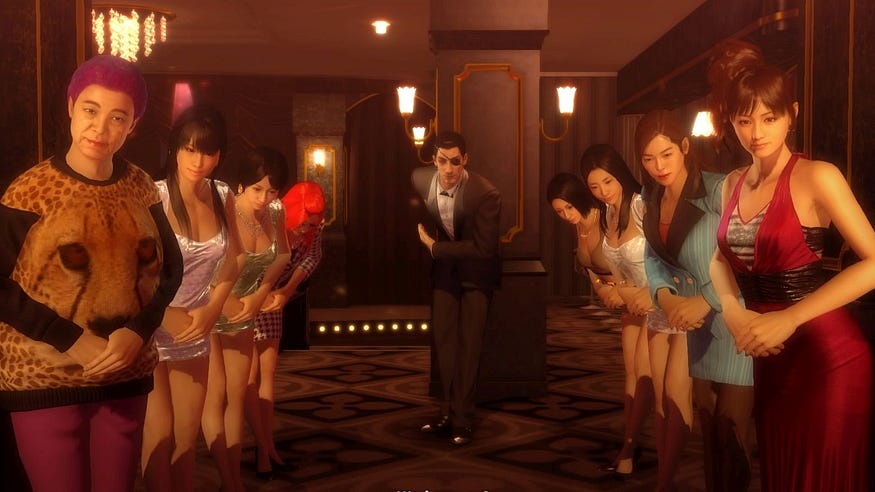
Goro Majima — “Interplanetary Spark”
In Majima’s cabaret club side questline (dubbed “Cabaret Club Czar” in-game), Majima has to go up against five greedy cabaret club managers called the Five Stars by attracting their customers and battling them for nightlife control in Sotenbori (based on the Osaka district of Dotonbori).
Unlike Kiryu’s questline, fights happen sparingly in Majima’s side business questline, often in specific scenarios pertaining to the questline’s story.
Several of these scenarios involve ‘cabaret club battles’ in which Majima has to pit his own club against one of the managers’ clubs and compete to earn the most revenue in a single night. After Majima inevitably beats the rival manager, some of them end up challenging Majima to a real fistfight battle, during which “Interplanetary Spark” will play in the background.
The track is more inspired by jazz compared to “Trouble Shooting Star” and its rock influence. Although the track retains Kiryu’s counterpart’s fast tempo and hard-hitting beats, it conveys an entirely different message about Majima and his fighting style.
Thanks to a combination of clever percussion play and funky melody backed up by a legendary bass line, the track made for a fun and fast-paced swing piece fit for a performance on the dance floor or a jazz club. It exudes class in the same way Kiryu’s track exudes grit.
In accordance with the notes inviting listeners to dance along, Majima treats most of his fights like this fight track: a dance. However, he is not just fishing for style points; his build is slimmer and less resilient than Kiryu’s, which forced him to adopt more flair and finesse in his fighting style (with literal break-dancing as one of his available fighting styles).
As a result, high-flying somersaults and slithery evasions have become inseparable from Majima’s art of combat. Combined with his sometimes twisted sense of pleasure in fighting, Majima can be seen dancing around his opponents, confusing them with his unconventional but deadly movements.
It also helps that the track has an overall playful atmosphere, which made a lot more sense given the context: Majima had just beaten a rival cabaret club manager where it mattered.
His cabaret club has just been proven to be better. Now they are just being sore losers and have challenged him to a slugfest, a contest he knows he won’t lose. Why not have fun a little? At this point, Majima is just toying with his opponents, and the track captured that sensation perfectly.
This is what the track captures so well: the excitement that Majima and his players have when engaging in a fistfight, especially in the ones where he can have the most fun bamboozling his opponents.
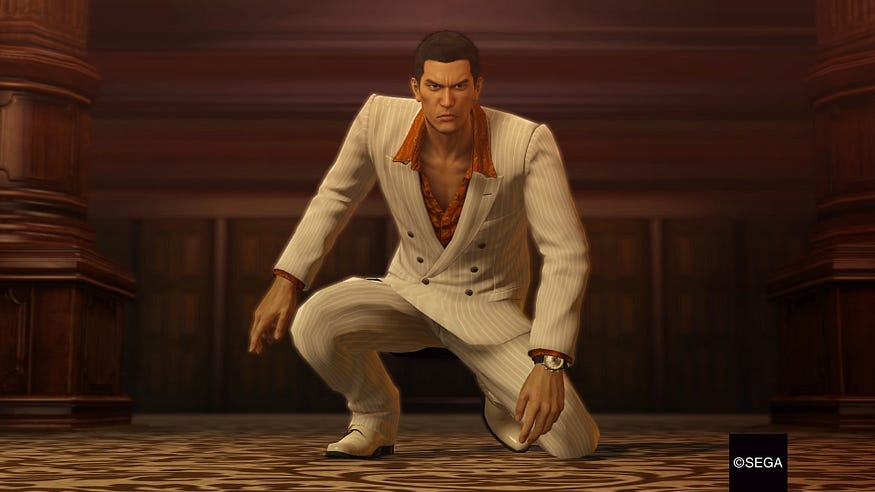
Despite the praise I have given to these two fight songs over multiple paragraphs, that is not to say that the other game tracks are lackluster. But once the limited appearance of these two tracks is taken into account, it is hard to not recognize them as masterpieces.
The songs’ legacy may have been minuscule in regards to the characters they are attached to, but a look into the songs’ YouTube comments may prove otherwise. There you can find fans reminiscing the moments when the songs came on, lamenting on why they didn’t become their characters’ main fight songs, or of course, loving the songs for being absolute bangers.
